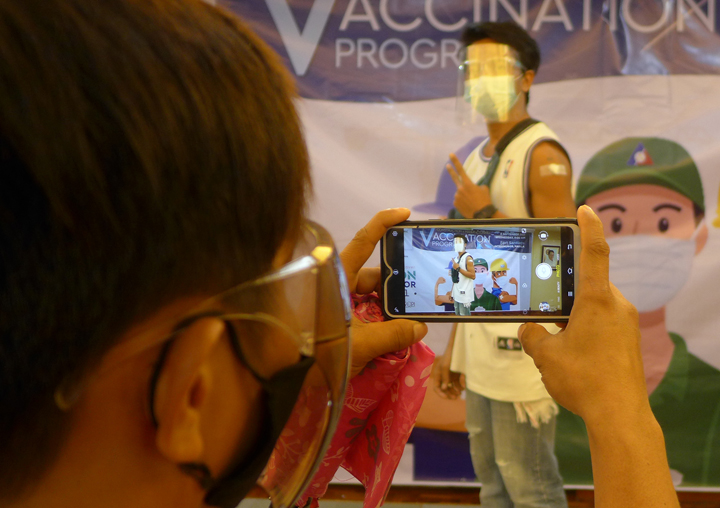
THE last-minute decision to shift to a more restrictive quarantine measure in the National Capital Region (NCR) dented the business sector’s trust in the government’s Covid-19 response, a private sector leader said.
George T. Barcelon, Legislative-Executive Development Advisory Council private sector representative, told the BusinessMirror that the “sudden backtracking to MECQ [modified enhanced community quarantine] doesn’t reflect well on government authorities.”
Metro Manila’s lockdown measure was supposed to be eased to general community quarantine (GCQ) with alert level scheme beginning Wednesday; the capital was also subject to pilot testing of granular lockdown measure.
On Tuesday, however, the Covid-19 Inter-Agency Task Force (IATF) said the MECQ was instead extended until September 15 for NCR, deferring the implementation of the previously announced measure.
“Some sectors [that] were already in the process of preparation [workers and supplies] are disappointed,” he lamented. “Next time they will not trust [an] announcement until later.”
The Philippine Chamber of Commerce and Industry (PCCI) said that the government should be “prudent” in its pronouncement on quarantine protocols given its impact on the business and the public.
“Authorities must be careful in recklessly raising public expectations that will not be matched by the outcome. There is a risk that it might cause disappointment followed by frustrations and could trigger depression and despair,” PCCI Acting President Edgardo G. Lacson said in a statement.
Lacson said that the “cancelation of the implementation of granular lockdown diminishes the credibility of official policy announcements.”
Makati Business Club Francisco Alcuaz Jr., meanwhile, said that the “government must have good reason to defer, hopefully due to new information rather than incomplete staff work.”
“There is a cost to uncertainty, yes, but there is a bigger cost to wrong policy,” he told the BusinessMirror, calling for a science-backed policy for community quarantine guidelines.
Reimbursement for small biz
Akbayan Party-list, in a statement on Wednesday, compelled the government to reimburse the small businesses’ losses due to the last-minute decision to keep NCR under MECQ.
Akbayan First Nominee Perci Cendaña explained that the government’s “carelessness and impulsive actions” resulted in businesses such as restaurants, including their employees, losing resources and savings as they prepare for the supposed GCQ.
In a recent community quarantine guideline, outdoor and indoor dine-in services in NCR are not allowed during MECQ. Take-out delivery for restaurants, however, is 100-percent allowed.
“The IATF must reimburse small businesses that incurred losses due to its ’laban-bawi’ quarantine protocols. This kind of negligence and thoughtlessness from the government hurts everyone, especially small enterprises and their workers who are trying their best to survive despite the pandemic,” Cendaña said.
While the Akbayan official understood the need to heighten restrictions, he explained that an “early heads up” should be given by the government.
‘Bakuna bubble’
THE Management Association of the Philippines (MAP) stressed the need to conduct further discussions on creating a “bakuna bubble” or micro-herd immunity to allow more mobility for the vaccinated population.
The IATF should consider the new pilot proposal right away, MAP President Aurelio R. Montinola III said in a statement on Wednesday.
“We must immediately change the ‘health mostly’ narrative and action plan to combat the Covid-19 pandemic after 18 futile months of using a community quarantine lockdown approach,” he said.
Montinola said the rollout of the vaccination program should be parallel with the initiatives to restore the labor force to safely reopen the economy.
“For now, the ‘bakuna bubble’ approach seems to be the appropriate middle ground for the Metro Manila mayors and the long-suffering NCR economic engine. Additional treatment capacity and improved contact tracing likewise go hand in hand,” he added.
‘A disruption’
WITH the recent announcement of granular lockdown measure pilot testing, the PCCI said that any form of lockdown measure is still “disruptive to business.”
“It is a tacit admission by authorities that they will henceforth abandon the intermittent and harmful regional lockdown protocol. Yet, it must be recognized by authorities that a lockdown, whether region wide or granular, remains disruptive and a disincentive to business operations,” Lacson said in a recent statement.
But he pointed out that implementing granular lockdown will allow both essential and non-essential businesses to operate under certain health guidelines, which he cited as an upside. Lacson said the business group is also asking for a full opening of the economy even if the herd immunity threshold is not yet achieved. Citing health experts’ claims, he said achieving herd immunity is “impossible” due to the virus mutation, leaving the vaccine “behind the curve.”
“The Covid-19 virus and its variants will be here forever but it can be contained by simply observing prescribed health protocols of masking, handwashing, and social distancing,” Lacson said.
Semicon industry
THE semiconductor and electronics sector, meanwhile, is not worried by the sudden MECQ shift. Semiconductor and Electronics Industries in the Philippines Foundation Inc. (Seipi) President Danilo Lachica told the BusinessMirror they “are not affected too much” because the sector is allowed 100-percent operational capacity given that it is an essential industry.
However, he said that a potential concern is the transportation of workers coming from Metro Manila.
“I believe it’s [MECQ] the right decision to protect people,” he said.
Image courtesy of Nonie Reyes

